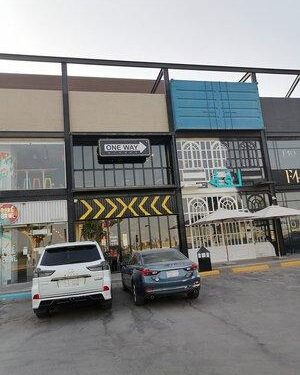Saudi Arabia’s Logistics Transformation: FedEx’s Riyadh Hub as a Catalyst for Regional Trade and Investment
In a significant move poised to reshape the logistics landscape of the Middle East, FedEx has unveiled its state-of-the-art hub in Riyadh, marking a pivotal moment for Saudi Arabia’s aspirations to become a global trade nexus. As the Kingdom embarks on an ambitious plan to diversify its economy under Vision 2030, this new facility is set to enhance the country’s logistics capabilities, streamlining supply chains and bolstering regional connectivity. Experts argue that the FedEx hub will not only facilitate faster and more efficient trade routes but also act as a beacon for foreign investment, further solidifying Saudi Arabia’s position as a vital player in the global marketplace. With an eye toward transforming the region’s economic landscape, this development signals a new era of opportunity and collaboration in Saudi Arabia and beyond.
Saudi Arabia’s Logistics Revolution and the Strategic Role of FedEx’s Riyadh Hub
In recent years, Saudi Arabia has emerged as a pivotal player in the logistics sector, fueled by Vision 2030’s ambitious goals to diversify the economy and enhance global competitiveness. Central to this transformation is the establishment of FedEx’s Riyadh Hub, strategically positioned to cater to the growing demand for efficient supply chain solutions across the region. This hub not only enhances operational efficiency but also provides an extensive network that links Asia, Europe, and Africa, fostering greater trade connectivity. As a result, businesses are now able to leverage faster and more reliable logistics services, reinforcing Saudi Arabia’s standing as a vital logistics gateway.
Moreover, the impact of this logistics revolution extends beyond improved transport capacity. By serving as a catalyst for regional trade and investment, the hub showcases the Kingdom’s commitment to modernizing its infrastructure and attracting foreign direct investments. Key benefits of the Riyadh Hub include:
- Enhanced Connectivity: Streamlined cargo operations that connect to over 220 countries.
- Reduced Transit Times: Innovative logistics solutions that cut delivery times significantly.
- Economic Growth: Boosting local economies through job creation and support for small and medium enterprises.
This multifaceted approach positions Saudi Arabia not merely as a transit stop but as a thriving logistics ecosystem, ready to support the future of regional trade.
Enhancing Regional Trade Connectivity Through Innovative Infrastructure Investments
Saudi Arabia is witnessing a remarkable transformation as it invests in innovative infrastructure to enhance its logistics capabilities, with FedEx’s new hub in Riyadh playing a pivotal role. This state-of-the-art facility is set to bolster the Kingdom’s position as a logistics powerhouse, driving both regional trade and investment. By improving shipping speed, reducing costs, and streamlining customs processes, FedEx is creating a seamless trade experience that will attract businesses worldwide. The hub will serve as a significant transit point for goods traveling between Asia, Europe, and Africa, effectively positioning Saudi Arabia as a central player in the global supply chain.
The ripple effects of this development extend far beyond logistics, as enhanced connectivity encourages collaboration among neighboring countries. Key benefits of this investment include:
- Increased Trade Volume: Enhanced infrastructure is expected to lead to a significant uptick in trade activities in the region.
- Job Creation: New employment opportunities will arise in warehousing, distribution, and customs operations.
- Innovation Hubs: The Riyadh Logistics Hub aims to foster new technological advancements in logistics and supply chain management.
As part of its comprehensive strategy, the Saudi government is also focusing on developing complementary transport networks, including roads, railways, and ports. This integrated approach will not only facilitate movement within the country but also strengthen connections with neighboring markets. In a bid to maximize regional potential, stakeholders are encouraged to explore joint ventures, share best practices, and leverage the advantages presented by this cutting-edge logistics infrastructure.
Boosting Foreign Investment: Recommendations for Leveraging Logistics Developments
In a rapidly evolving global market, Saudi Arabia stands at the forefront of logistics innovation, particularly with the establishment of FedEx’s cutting-edge hub in Riyadh. To maximize the potential of this development and attract foreign investment, it is crucial for the Kingdom to implement strategic initiatives. First, enhancing transportation infrastructure is vital. Upgrading roads, airports, and ports can facilitate seamless connections between domestic and international markets. Additionally, incentivizing businesses through tax breaks or grants can encourage international companies to establish operations within the region, thus creating a thriving logistics ecosystem.
Furthermore, fostering public-private partnerships (PPPs) is essential for leveraging the full capacity of the logistics sector. These collaborations can streamline operations and share costs, ultimately leading to more efficient service delivery. To attract long-term investments, Saudi Arabia should also focus on developing a skilled workforce tailored to meet the demands of the logistics industry. Implementing educational programs and vocational training can equip the local population with the necessary skills to succeed in this domain. By addressing these key areas, Saudi Arabia can position itself as a logistics hub that not only services regional needs but also competes on a global scale.
Key Takeaways
As Saudi Arabia positions itself as a pivotal player in the global logistics landscape, the establishment of FedEx’s state-of-the-art hub in Riyadh marks a significant milestone in this transformation. The facility not only reinforces the Kingdom’s strategic vision of becoming a logistics hub for the region but also signals opportunities for trade and investment that extend beyond its borders. With enhanced connectivity and improved supply chain efficiencies, this development is set to facilitate smoother trade routes, benefiting both local businesses and international partners alike. As the Saudi government continues to invest in infrastructure and technology, the implications of such initiatives are likely to reverberate throughout the Middle East, potentially reshaping the dynamics of regional commerce. As stakeholders from various sectors prepare to navigate this evolving landscape, all eyes remain on Saudi Arabia and its ambition to redefine the future of logistics in the region.














